All about Moringa tea benefits and how to brew it?
Tea is a beverage relished by a vast number of individuals. Presently there are various tea types available with multifarious benefits. If you are looking to ramp up your health goals by opting for healthier tea versions, surely, you should consider Moringa tea!
The leaves and seeds of the Moringa plant are renowned in the treatment of serious ailments for thousands of years. The leaves contain a range of nutritious bioactive compounds : flavonoids, phenolic acids and carotenoids. These compounds are essential for maintaining a good health.
Studies on this plant have unveiled a variety of advantages it possesses. This article talks in length about everything you would want to know about the Moringa plant. So, to begin with, let us know what exactly is Moringa tea.
Contents
What is Moringa tea?
The Moringa Tea is derived from the leaves of the Moringa Oleifera plant. This tree is recognized by different common names such as ‘The miracle tree’, ‘Drumstick tree’, etc. Since it produces benzoil, ben oil tree is another name it is known under. Moringa plant belongs to the tropical areas of Southeast Asia, with the largest cultivator being India. This tree also has agricultural and medicinal purposes. It is specially grown for such uses in the Philippines, Indonesia, Nepal, Taiwan.
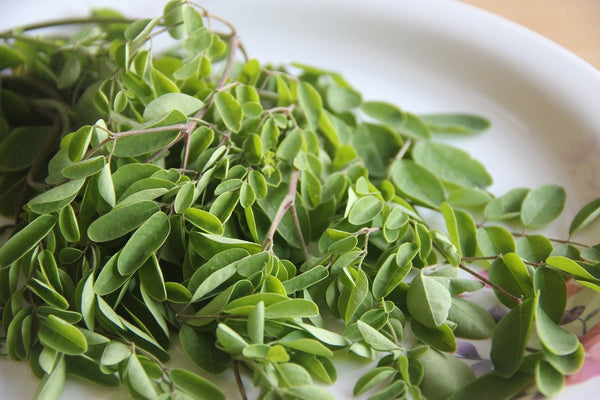
The Moringa plant grows rapidly and almost every other part of the plant like the bean, roots, leaves, and seed is useful. Its leaves are steeped in pure hot water to prepare the tea. The tea can be made by using the powder derived from dried Moringa leaves or the commercially available tea bags.
Did you know that Moringa tea does not contain caffeine? This means that you can brew the tea and consumed it at any time of the day without having to worry about the side effects of caffeine.
Now, as we have understood what Moringa tea, you might be curious to know more about what Moringa tea tastes like. Let's explore that in detail.
The flavour and nutrition of Moringa
Moringa tea has an earthy flavour and tastes similar to green tea. However, it is less bitter and astringent as compared to green tea. Also, in comparison to green tea, Moringa tea has a better tolerance to higher temperatures and hence, a longer brewing time. The Moringa leaves contain the most essential minerals and nutrients among all the parts of the tree such as its seeds, leaves, stem etc. The Moringa tea is prepared from steeping these leaves.
Did you know the US Department of Agriculture states that raw Moringa tea leaves possess a variety of vitamins and minerals? This plant is a rich source of Vitamin A, Vitamin C, and Vitamin B6. Essential nutrients such as beta carotene and amino acids are also present in this tea. Around a hundred grams of the Moringa leaves are packed with a protein content of 9 grams.
With such a rich nutritional composition, it's no wonder that the tea is capable of providing a wide range of health benefits. Let's look at some of the health conditions that Moringa tea can help you with.
Health benefits of Moringa tea
Moringa tea could influence your overall health in numerous ways and its recipe is used to combat different ailments for ages. Following are a few of the top health benefits of Moringa tea.
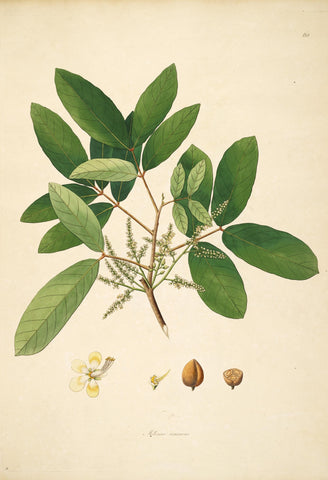
Rich in antioxidants
This plant possesses chock full of antioxidants that have a range of health benefits. Did you know that oxidative stress contributes to the onset of Alzheimer’s, dangerous heart disorders, and specific types of cancer? The free radicals that are produced in the body under oxidative stress can be reduced with the aid of antioxidants. Beta-carotene and vitamin C are the antioxidants present in this tea. This antioxidant activity even contributes to improvement in immune health. Quercetin is another kind of antioxidant that’s present in this tea that could help one to control their blood pressure levels.
Lowers inflammation
Inflammation is an essential response that showcases an uncomfortable or undesirable stimulus of the human body. Chronic inflammation is however an indication of serious health issues such as chronic pain, strokes, increased blood pressure. Many plant products contain anti-inflammatory compounds, some being more effective in reducing the inflammation than others. Did you know that the Moringa tea possesses isothiocyanates that are inflammation-fighting agents? Drinking this tea could reduce the inflammation of the body and provide relief as well.
Could restrict arsenic toxicity
Arsenic poisoning could be a matter of concern in certain regions. This chemical is found in groundwater by the process of leaching. Abdominal pain, nausea, vomiting, diarrhea are symptoms seen by arsenic poisoning. But, did you know that studies indicate, consumption of Moringa tea inhibits the changes in cholesterol that are usually visible in cases of arsenic poisoning? The Moringa tea contains properties that aid in restoring healthy glutathione levels.
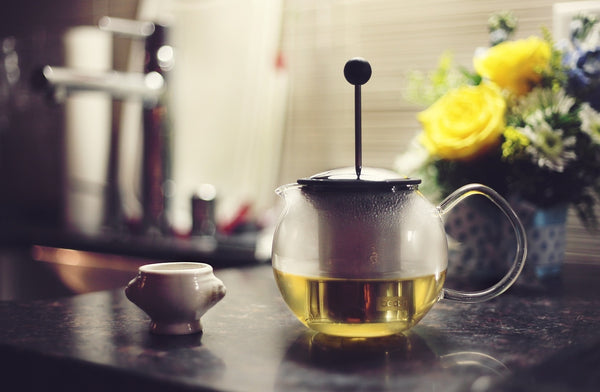
Controls diabetes
Moringa tea assists those with diabetes to regulate the glucose level found in the blood. Few studies show that consuming Moringa tea after meals could lower glucose levels. Further human trials and studies are however needed to confirm this benefit.
Protection and nourishment to skin and hair
Moringa tea contains proteins that could protect the skin cells from damage. Consumption of this tea would also secure hair from free radicals. The hydrating and detoxifying elements work in unison to provide healthy and glowing skin. The antioxidants help in reducing pigmentation and detrimental effects of aging on the skin like wrinkles, spots, etc. The next time you feel like having a beverage remember about the Moringa tea, it also bestows dermatological boons!
Could combat malnutrition
Did you know that in many parts of Asia and Africa, the Moringa tree is often referred to as the tree of life or also known as the miracle tree? This is mainly because the nutritional content of this drought-resistant tree allows it to be used as a staple food in impoverished regions. The plant is packed with vitamins and minerals essential to combat hunger and enable individuals to easily increase their body weight.
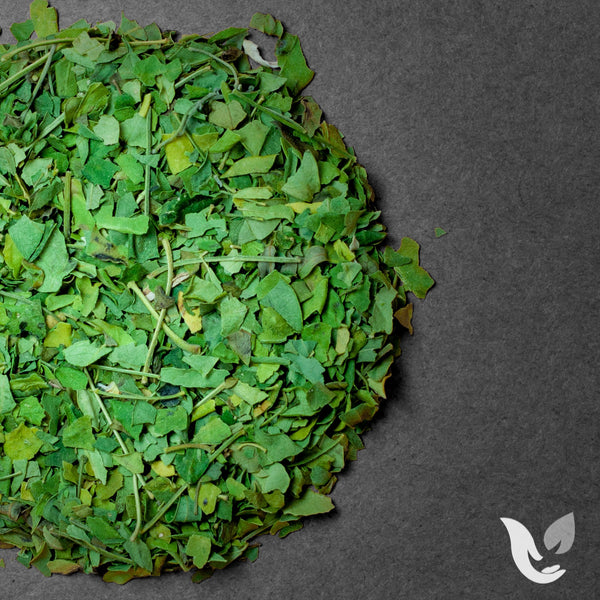
Improving stomach ailments
The extracts found in the Moringa tea help in treating stomach disorders such as constipation, gastritis, and even colitis. The leaves of the plant contain antibacterial and even antimicrobial properties that could assist in inhibiting and limiting the growth of numerous pathogens. Also, as this tea contains nutrients rich in vitamin B it even assists in the process of digestion.
Treatment against cancer
Moringa tea could enhance the efficacy of the drugs given during chemotherapy. Few pieces of research showcase that Moringa is tolerated by lab animals, however more studies are needed to prove the benefits of the treatment of Moringa against cancer. In case you are undertaking chemotherapy, it is recommended to consult with your doctor as it is not encouraged to consume herbal products without the physician’s permission as herbs could pose a hindrance in the treatment of the chemotherapy drugs.
Secures against chronic diseases
Chronic disease could target the vital organs of the human body. The Moringa leaves contain constituents that can shove away many chronic diseases. The substance that could help in doing so are polyphenols, tannins, saponins, etc. The Moringa tea could prevent the onset or reduce the possibility of one developing life-threatening diseases to some extent.
Enhances the bone health
Have you heard about an herbal tea helping you in providing calcium to your bones? Well, the Moringa tea contains calcium and phosphorous that provides nourishment to the bones keeping them healthy and strong. As it even contains anti-inflammatory contents, the Moringa extract could also assist in treating conditions such as arthritis thereby healing bones that have undergone excess wear and tear and reducing their damage.
Now, as we have covered the health benefit this tea provides, let us also look at the possible side-effects drinking the Moringa tea could create.
Side-effects of Moringa tea
Even though the side-effects of this tea aren’t many it is advisable to be aware of the few and to seek medical advice in case of allergies or symptoms of intolerance after drinking the tea. Also, it is suggestive to consult with your physician before introducing any change in the regular diet to prevent any untoward results. Following are the known side-effects of the Moringa tea.
During Pregnancy
Pregnant women are strictly advised against consuming Moringa tea. Some studies indicate that the rhizomes and flowers of the Moringa plant contain compounds that could cause contractions leading to premature births or even miscarriages.
Interactions with medications
The Moringa plant possesses alkaloids that could reduce the heart rate and even hinder the blood pressure. In case you are under medication for blood pressure or any cardiac diseases, remember to consult with your physician before consuming the Moringa tea.
Levothyroxine
This medicine is used to fight against thyroid-related issues. Even though there are compounds present in the Moringa plant that could aid the thyroid function, it is discouraged to consume the Moringa tea along with other thyroid medication.
Lastly, let us learn about the process of making Moringa tea.
How to brew Moringa tea perfectly?
Are you a morning tea person or an afternoon one or do you not follow any time zone while consuming this amazing beverage! Well, next, let us read about the different ways you could make the Moringa tea any time you wish to.
We recommend teakruthi's Morning Glory, a 100% pure Moringa leaves tea that you can brew anytime. Moringa Glory brews to a dark yellow colour, is caffeine free and has smells like Moringa herbs.
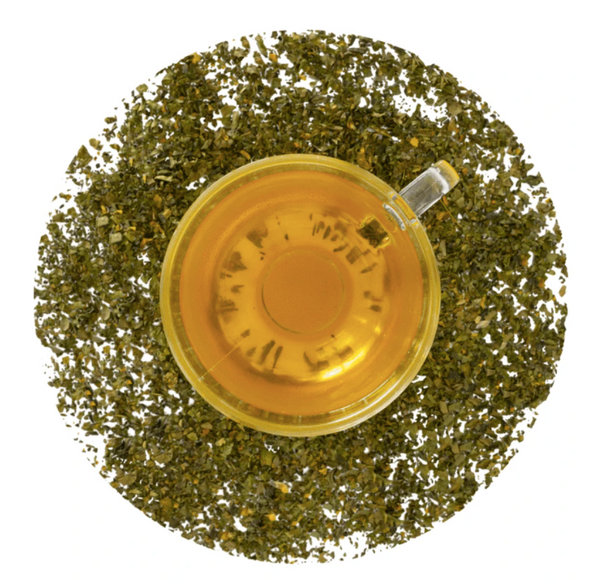
With this tea, you can directly jump to step 5. However, if you'd like to prepare your Moringa tea from scratch, then you can take the help of following steps.
1. Bring Moringa leaves
The mature Moringa leaves are considered to be the best to prepare the concoction as they dry up faster. Gather a few stalks, about 3 to 4 would be sufficient.
One way that you could follow to prepare the Moringa tea is by simply adding the Moringa leaves to a boiling pan of water. Add half a cup of the leaves for one and a half cup quantity of water. Allow it to cool and consume the tea concoction.
2. Air drying
Allow the leaves to air dry including the stalks as well. Leave it like this for a day or till the leaves seem to be crisp. By this process of air drying, the leaves would fall out. Post this it would be easy to separate the stalks.
Are you looking to obtain some fiber content from your Moringa tea? Well, some people even utilize the stalk while preparing the tea due to its fiber content and even you could do the same.
3. Grinding
Take a blender and grind the air-dried leaves of the Moringa plant along with the stalks, based on your preference. Remember to wipe the grinder clean and not grind in presence of any water residue as it would be a waste and the leaves would end up in a paste-like consistency when you would be expecting it to get powdered. Also, grinding the leaves for longer could give you fine Moringa powder which could be sprinkled on your favourite cuisines.
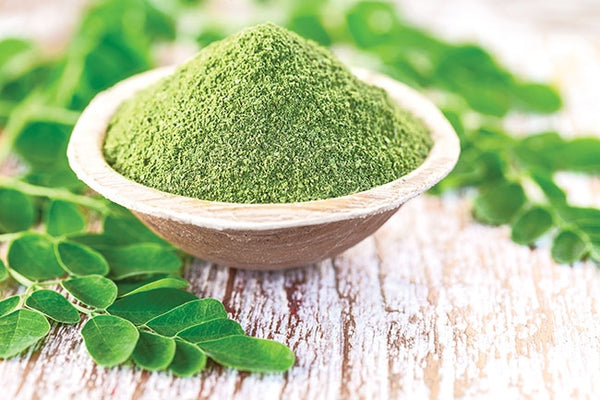
4. Storage
Do you like to have your tea by soaking a tea bag or do you like to add the powdered leaves and then strain them away? Based on your liking you need to store them accordingly. Place the ground leaves in tea bags and store them in a dry place. Or you could use an airtight container to store the powdered leaves as well. Make sure that the area where you store is not moist as it would reduce the shelf life of the Moringa tea leaves in such a condition.
5. Preparing the tea
Now, whenever you desire to make the beverage just add the tea leaves to hot water. You could even enhance the flavour by squeezing a lemon, to give your tea a tangy taste. If you want it sweet adding sugar is an option however, it is not recommended if you are aiming at healthier options. Instead, you could add a spoonful of honey to your beverage and relish the same. If you prefer a pungent and minty taste, you could also add mint leaves to the hot water.
Finally, we have read about the health benefits, the flavour, the nutrition, way to prepare the beverage, and even the possible side-effects of the Moringa tea. Now, as you are fully equipped with details about the Moringa tea, go ahead and relish the amazing and healthy beverage!
References
- Bioactive Components in Moringa Oleifera Leaves Protect against Chronic Disease
- Moringa oleifera: A review on nutritive importance and its medicinal application
- Nutritional Characterization of Leaves and Herbal Tea of Moringa oleifera
- Review of the Safety and Efficacy of Moringa oleifera
About the author






0 comments